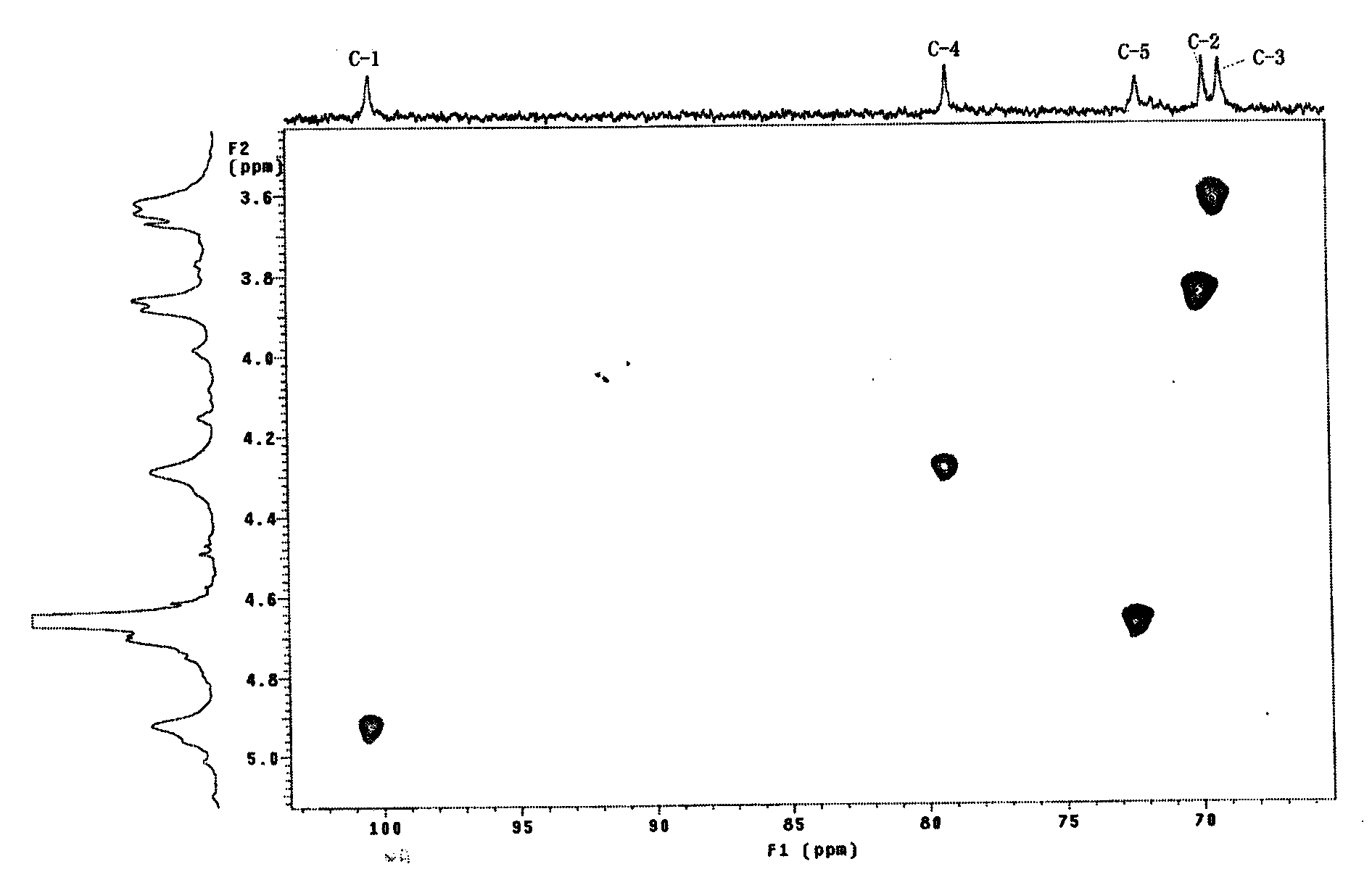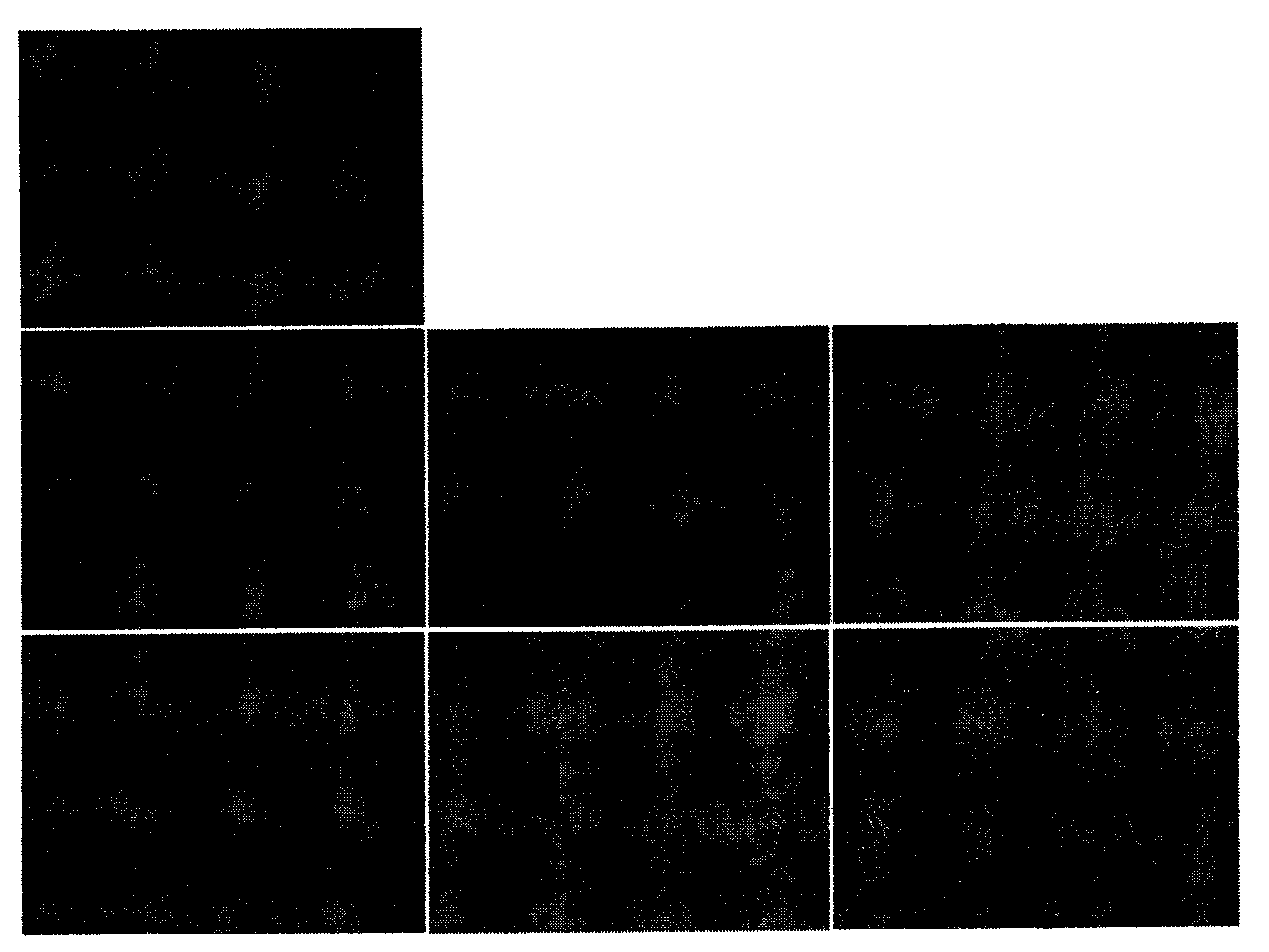Platycodon grandiflorum polysaccharide, and degradation product, preparation method and application thereof
A technology of platycodon polysaccharides and degradation products, which is applied in the direction of sugar derivatives, sugar production, sugar derivatives, etc., and can solve the problems of anti-tumor drug resistance and other problems
- Summary
- Abstract
- Description
- Claims
- Application Information
AI Technical Summary
Problems solved by technology
Method used
Image
Examples
Embodiment 1
[0030] Example 1 Extracting platycodon polysaccharides from platycodon rhizome
[0031] Take 3000 g of dried platycodon root, degrease 2 times (5 days / time) with 15 L of 95 wt % ethanol, filter and then dry naturally at room temperature. The dried bellflower decoction pieces were extracted with boiling water, adding 30 L of water each time for 6 hours, and extracted 4 to 6 times in total. After extraction, filtered to obtain the extract, the sulfuric acid-phenol method was used to detect the sugar content in the extract until the sugar reaction was not obvious. The extracts were combined, concentrated to about 10L, deproteinized with 15% (w / v) trichloroacetic acid, centrifuged, and the resulting supernatant was neutralized to pH 7.0 with 10% NaOH, and then dialyzed against flowing water for 48 hours, the inner liquid Concentrate to 1-2L, add three times the volume of 95% ethanol under stirring, let it stand overnight, and centrifuge, the obtained precipitate is washed with abs...
Embodiment 2
[0040] Example 2 Preparation of Platycodon grandiflora polysaccharide degradation product
[0041] Take 250mg of Platycodon grandiflora pectin polysaccharide and place it in a dry 150ml round bottom flask, add 50ml of 0.05mol / L trifluoroacetic acid, seal it tightly, and incubate at 100°C for 1h. After the reaction liquid was distilled off under reduced pressure to remove trifluoroacetic acid, it was dialyzed against distilled water (500ml×4) for 48h, and the inner and outer liquids of the dialysis bag were respectively concentrated and then freeze-dried. The inner solution was lyophilized to obtain secondary platycodon polysaccharide 4-3bde (98mg). Combine the lyophilized products of the two dialyzed external fluids, separate them with Bio-Gel P-2 gel filtration column, detect them with sulfuric acid-phenol method, use standard sugar as a control, collect the components according to the peak position and freeze-dry them to obtain four components , respectively component 1 (4-...
PUM
| Property | Measurement | Unit |
|---|---|---|
| molecular weight | aaaaa | aaaaa |
| molecular weight | aaaaa | aaaaa |
| molecular weight | aaaaa | aaaaa |
Abstract
Description
Claims
Application Information
 Login to View More
Login to View More - R&D
- Intellectual Property
- Life Sciences
- Materials
- Tech Scout
- Unparalleled Data Quality
- Higher Quality Content
- 60% Fewer Hallucinations
Browse by: Latest US Patents, China's latest patents, Technical Efficacy Thesaurus, Application Domain, Technology Topic, Popular Technical Reports.
© 2025 PatSnap. All rights reserved.Legal|Privacy policy|Modern Slavery Act Transparency Statement|Sitemap|About US| Contact US: help@patsnap.com



